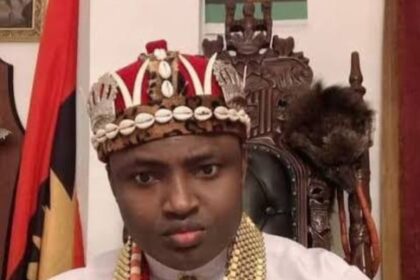Etisalat Nigeria Limited, Nigeria’s fourth largest telecommunication firm, appears to be swimming deeper in troubled waters as Mubadala Development Company of United Arab Emirates, the company’s largest shareholder, has pulled out its investment and headed out of the country, those familiar with the matter have told PREMIUM TIMES.
Mubadala, an Abu Dhabi Government-owned investment and development company, controls about 70 per cent of the shares in Etisalat along with Etisalat UAE mobile, with Emerging Markets Telecommunications Services (EMTS, promoted by Hakeem Bello-Osagie, owning the remaining 30 per cent.
The UAE investor has hinted Etisalat Nigeria as well as the industry regulator, Nigerian Telecommunications Commission (NCC) of its decision to opt out of the joint ownership of the company, our sources said.
“I can tell you that Mubadala’s withdrawal takes effect from today (Thursday),” one source said, asking not to be named because he was not authorized to speak on the matter.
With the withdrawal of its largest investor, the board of Etisalat Nigeria might be dissolved, with the creditor banks effectively taking control.
One of our sources said the ultimatum given the telecom company to pay up its debt expires today or tomorrow.
To continue to run the company, the consortium of banks will most likely present a holding company with telecommunication operating experience to NCC for approval.
“The banks do not want the services of the company to cease,” one of our sources said. “So they are setting up a vehicle to keep whatever remains of Etisalat afloat. The banks may approach the NCC tomorrow or latest next week.”
Mubadala could not be reached for comments Thursday evening. Repeated telephone calls to its Abu Dhabi headquarters were unanswered. An email enquiry is yet to be responded to as at the time of publishing this report.
Etisalat has been facing huge financial crisis following pressures on it by a consortium of some foreign and Nigerian banks, led by Access Bank, to recover a $1.72 billion (about N541.8 billion) loan facility the company obtained in 2015.
The loan, which involved a foreign-backed guaranty bond, was for Etisalat to finance a major network rehabilitation and expansion of its operational base in Nigeria.
Its inability to meet its debt servicing obligation agreed since 2016 compelled the consortium of banks, prodded by their foreign partners, to take up the matter with the Central Bank of Nigeria and the NCC.
The intervention of the two regulatory authorities persuaded the banks to suspend their decision to take over the mobile telephone company, giving it opportunity to renegotiate and reschedule the loan.
But Mubadala’s decision to pull out of the company is likely to push the troubled firm deeper into survival crisis.
The Chairman of the company, Hakeem Bello-Osagie, did not answer calls made to him.
But an official of the company, Seyi Osunfedo, later called back to say she was not aware of the latest action by Mubadala.
“I can’t confirm that information for now,” she said. “As you are aware, discussions have been ongoing for some time now with various authorities to find ways to resolve the crisis. I am not aware that that decision has been taken.”
Asked whether Etisalat stands a chance of surviving should the UAE investor fail to rescind its decision to leave, Ms. Osunfedo said, “I don’t think there is any difficulty that cannot be surmounted.”
A spokesperson for Access Bank, Abdul Imoyo, did not answer or return multiple calls. He also did not respond to a text message.
Also, the spokesperson for the NCC, Tony Ojobo, did not respond to calls. He however responded to a text message, saying he was in a meeting.
Etisalat, which commenced business in Nigeria in 2009, acquired the unified access license, including a mobile license and spectrum in the GSM 1800 and 900 MHZ bands from the NCC in January 2007.
The company is rated by the NCC as Nigeria’s fourth largest telecoms operator, with about 21 million subscribers or about 12.9 per cent of the telecom market share as at January 2017.
MTN takes the lead with 60 million, or 40 per cent market share; Globacom, 37million, or 24.6 per cent; and Airtel 34.6 million, or 22.8 per cent.



